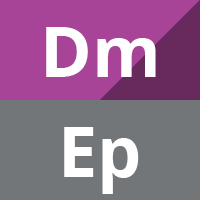
Eslicarbazepine acetate add-on for drug-resistant partial epilepsy
Abstract Background This is an updated version of the Cochrane Review published in the Cochrane Library 2011, Issue 12. The majority of people with epilepsy have a good prognosis, but up to 30% of people continue to have seizures despite several regimens of antiepileptic drugs. In this review, we summarized the current evidence regarding eslicarbazepine […]

The role of high-frequency oscillations in epilepsy surgery planning
Abstract Background Epilepsy is a serious brain disorder characterized by recurrent unprovoked seizures. Approximately two-thirds of seizures can be controlled with antiepileptic medications (Kwan 2000). For some of the others, surgery can completely eliminate or significantly reduce the occurrence of disabling seizures. Localization of epileptogenic areas for resective surgery is far from perfect, and new […]

Deep brain and cortical stimulation for epilepsy
Abstract Background Despite optimal medical treatment, including epilepsy surgery, many epilepsy patients have uncontrolled seizures. Since the 1970s interest has grown in invasive intracranial neurostimulation as a treatment for these patients. Intracranial stimulation includes both deep brain stimulation (DBS) (stimulation through depth electrodes) and cortical stimulation (subdural electrodes). This is an updated version of a previous […]

Antiepileptic drugs for the primary and secondary prevention of seizures in viral encephalitis
Abstract Background Viral encephalitis is characterised by diverse clinical and epidemiological features. Seizures are an important clinical manifestation and are associated with increased mortality and morbidity. Patients may have seizures during the acute illness or they may develop after recovery. There are no recommendations regarding the use of antiepileptic drugs for the primary or secondary […]

Antiepileptic drugs for the treatment of infants with severe myoclonic epilepsy
Abstract Background This is an updated version of the original Cochrane review published in 2015, Issue 10. Severe myoclonic epilepsy in infants (SMEI), also known as Dravet syndrome, is a rare, refractory form of epilepsy, for which stiripentol (STP) has been recently licensed as add-on therapy. Objectives To evaluate the efficacy and tolerability of STP […]

Prophylactic drug management for febrile seizures in children
Abstract Background Febrile seizures occurring in a child older than one month during an episode of fever affect 2% to 4% of children in Great Britain and the United States and recur in 30%. Rapid-acting antiepileptics and antipyretics given during subsequent fever episodes have been used to avoid the adverse effects of continuous antiepileptic drugs. […]

Immediate-release versus controlled-release carbamazepine in the treatment of epilepsy
Abstract Background Carbamazepine (CBZ) is a commonly used drug for epilepsy that is associated with troublesome adverse events including dizziness, double vision, drowsiness, poor co-ordination and unsteadiness. These adverse events often occur during peaks in drug plasma concentration. These adverse events may limit the daily dose of CBZ that can be tolerated and reduce the […]

Lamotrigine versus carbamazepine monotherapy for epilepsy: an individual participant data review
Abstract Background This is an updated version of the original Cochrane review published in Issue 1, 2006 of the Cochrane Database of Systematic Reviews. Epilepsy is a common neurological condition in which abnormal electrical discharges from the brain cause recurrent unprovoked seizures. It is believed that with effective drug treatment up to 70% of individuals […]

Monotherapy treatment of epilepsy in pregnancy: congenital malformation outcomes in the child
Abstract Background There is evidence that certain antiepileptic drugs (AEDs) are teratogenic and are associated with an increased risk of congenital malformation. The majority of women with epilepsy continue taking AEDs throughout pregnancy; therefore it is important that comprehensive information on the potential risks associated with AED treatment is available. Objectives To assess the effects […]

Treatment of epilepsy for people with Alzheimer’s disease
Abstract Background Any type of seizure can be observed in Alzheimer’s disease (AD). Antiepileptic drugs seem to prevent the recurrence of epileptic seizures in most people with AD. There are pharmacological and non-pharmacological treatments for epilepsy in people with AD. There are no current systematic reviews to evaluate the efficacy and tolerability of the treatment. […]

